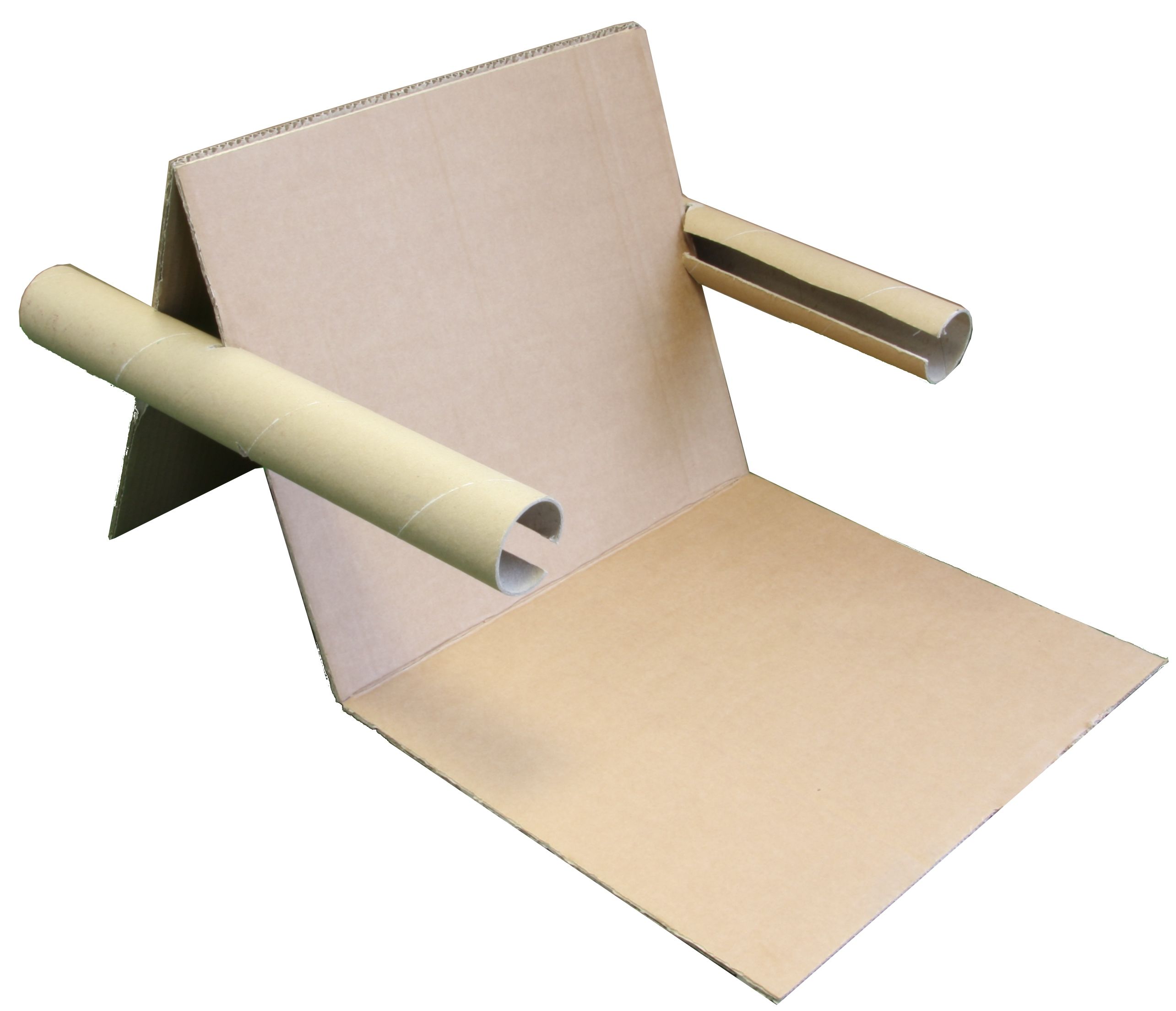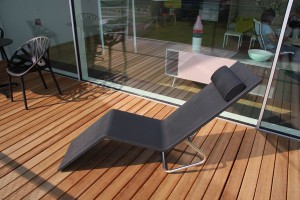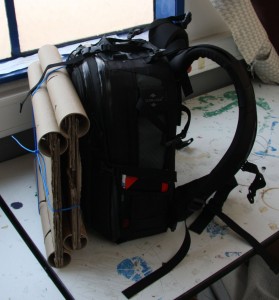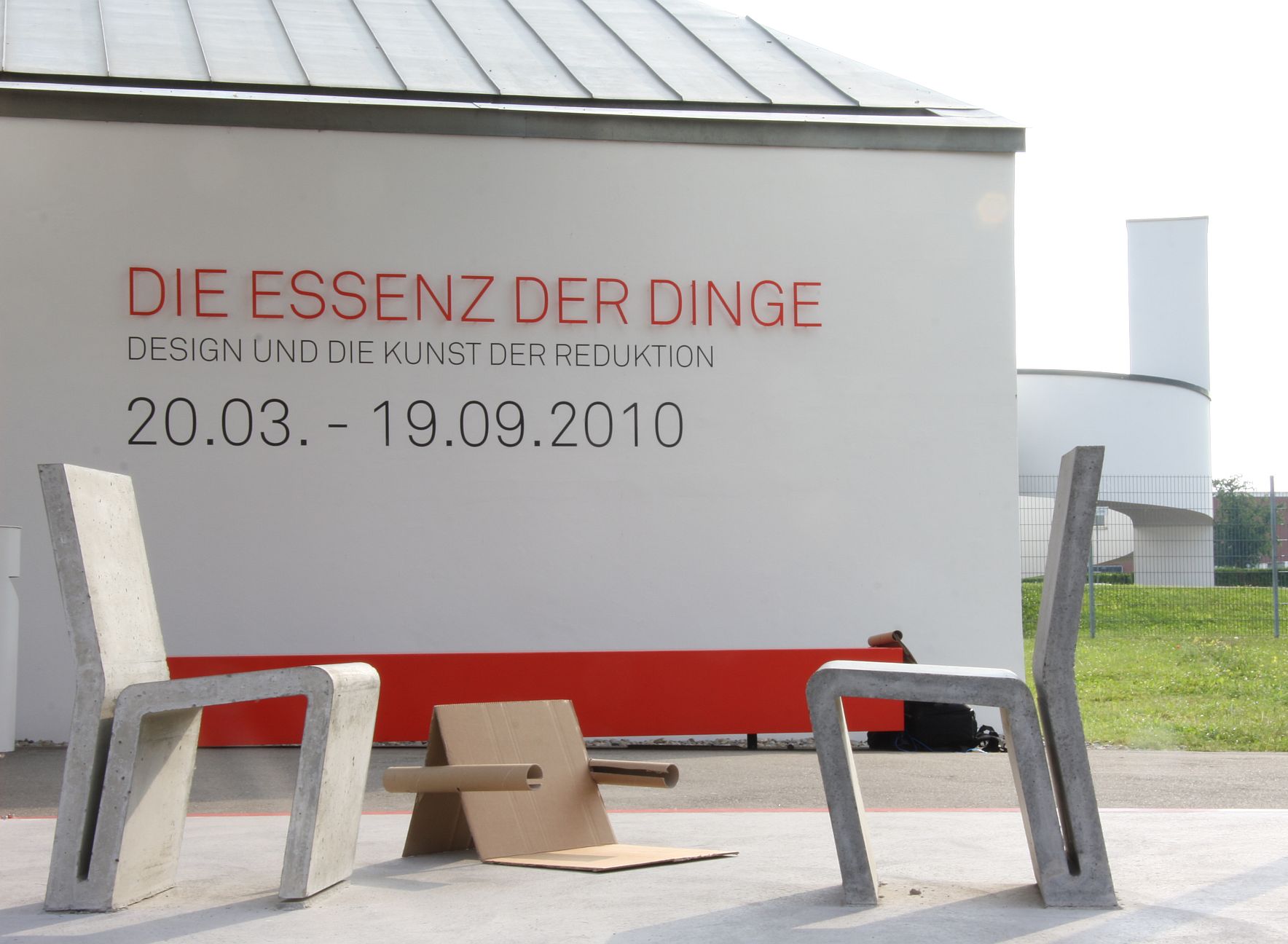
The motivation for the (smow)chair began with Chairless by Alejandro Aravena for Vitra.
Although a truly delightful product we were somewhat irritated by the fact that the design for Chairless wasn't that, well, "chairless" : rather replaces the tensions within a chair with the tensions in the users body.
The user becoming the chair and consequently limited in their movement while using Chairless.
But because the "chairless" concept so impressed us we decided to take the opportunity presented by the Vitra Design Museum cardboard furniture workshop and the exhibition "Essence of Things. Design and the Art of Reduction" to develop our own "chairless" chair.
Our criteria: 100% cardboard, no other material transportable as reduced a design as possible Our first decision was to lose the legs. Chairs don't need legs.
In western cultures we are so used to chairs with legs that we westerners find it quaint or even patronisingly "authentic" when we travel to other cultures where chairs with legs aren't in everyday use.
But chairs don't need legs.
And so the legs went.

The basis of our design was Maarten Van Severen's MVS Chaise from Vitra.
Its wonderful three sectioned form being the perfect basis for a folding "chair" with a seat, back and support. The only question was how to gain the stability we required: without resorting to other materials.
After much unsuccessful experimentation the answer came via the (smow)warehouse team.
Not only are the (smow)warehouse team experts in the packing and shipping of designer furniture and the construction of USM Haller units - they also know a little bit about statics.
And it was this input that was to lead to the form of the (smow)chair v1.0
In essence "the chair" has been reduced to "the arms".
The arms provide the stability and are responsible for the chair. The back/support/seat section - the part that most understand as a "chair" - is in contrast interchangeable and expendable.
He/she who has the arms can build a chair - he/she who has only the back/seat/support element cannot.

In addition the longitudinal slit in the arms allow the chair to be safely packed together.... and in the folded form (smow)chair can be readily transported.
We, for example, brought two (smow)chairs back from Weil am Rhein tied to the back of a rucksack.
The development of the (smow)chair has not stopped and (smow)chair v2.0 is finished, v3.0 is expected soon.
A production model is however still some way off.
Over the coming weeks we will not only document the further development of the (smow)chair but also use the (smow)chair to explain a little about furniture design and the designer furniture industry.
